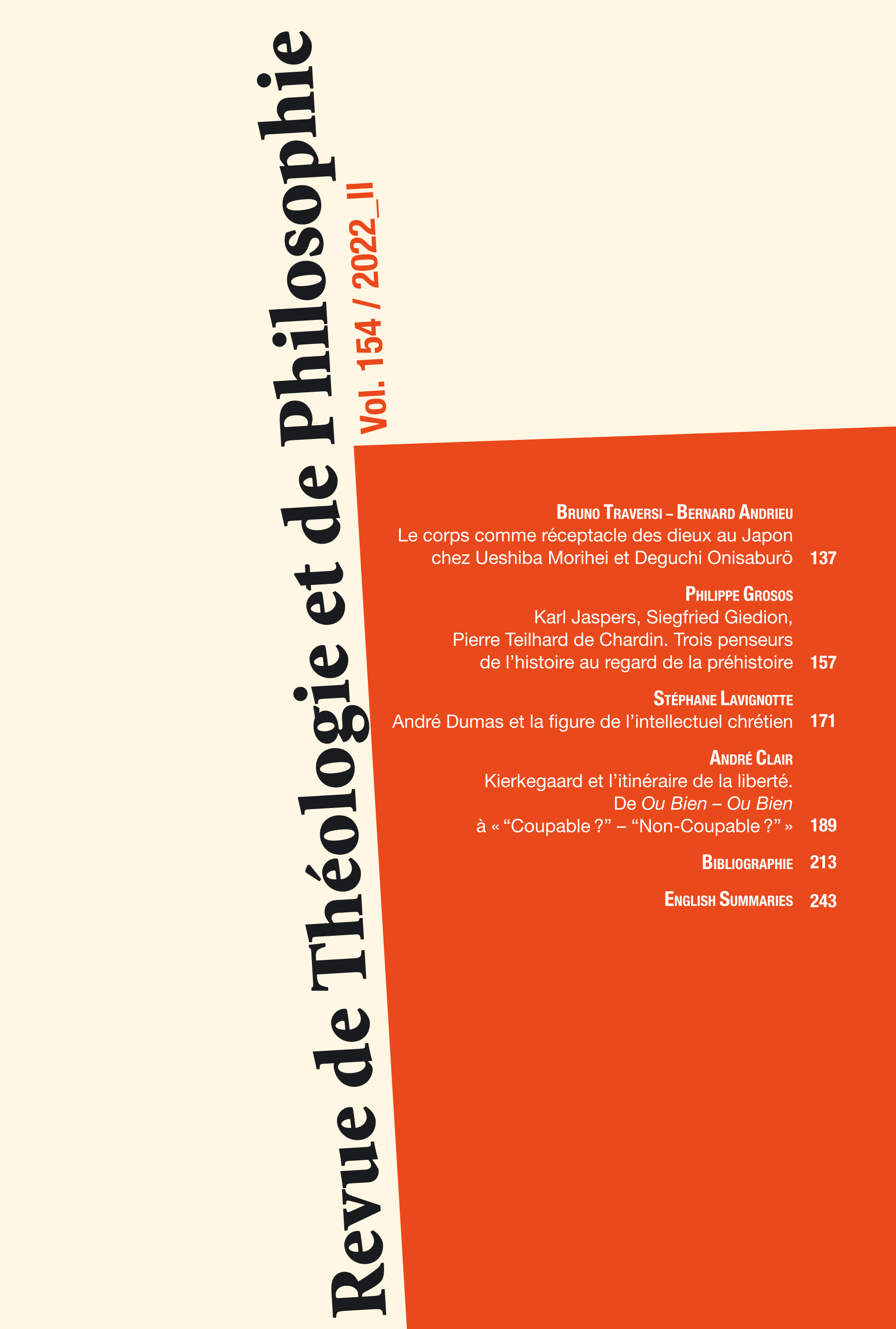The Body as a Receptacle of the Gods in Japan with Ueshiba Morihei and Deguchi Onisaburō
Abstract
Ueshiba Morihei (1883-1969), the creator of aikidō, founded his “budō” (martial way) with Deguchi Onisaburō (1871-1948), leader of Ōmoto-kyō, one of the New Japanese religions. They consider budō as “the way of creating and ordering the universe” as opposed to “bodily budō” influenced by the Western model of sport. According to them, the West, considered as materialistic, has profoundly modified Japanese practices so that the experimentation of the body as a Shintai, i.e. the receptacle of the kami (spirits or deities) during the trances of possession, is about to be lost, along with a whole world. Shintai enables worlds to communicate: with its loss, there are no more possible transgressions of ontological boundaries; man can no longer unite with his root and find his totality; animals, plants and stones no longer speak and the unique original God becomes inaccessible, hidden in “the imperceptible of the imperceptible”.
How to Cite
More Citation Formats
Issue

